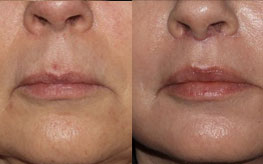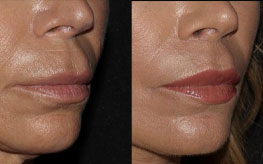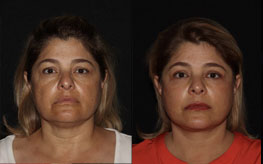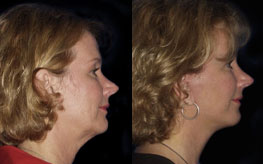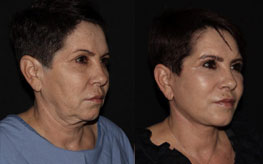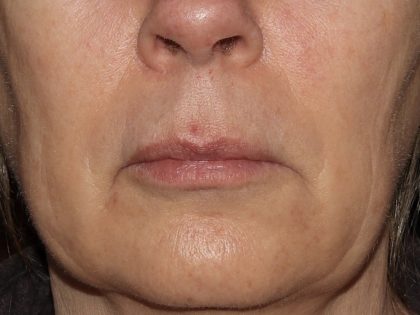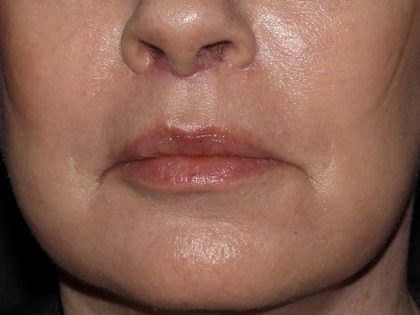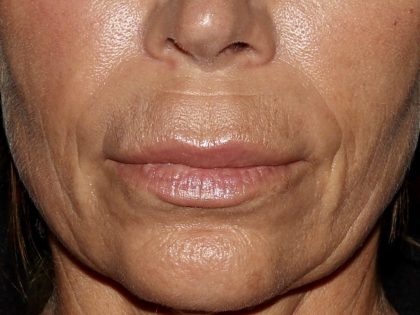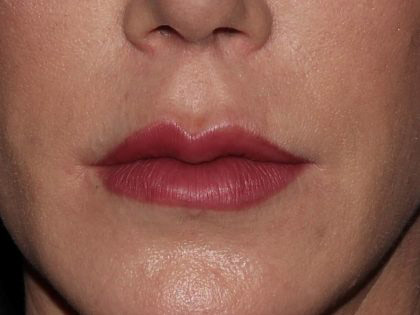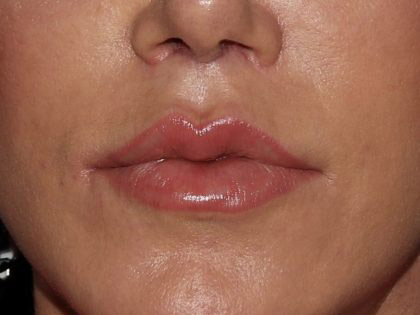Lip Enhancements
Conveniently located to serve the areas of San Diego, CA
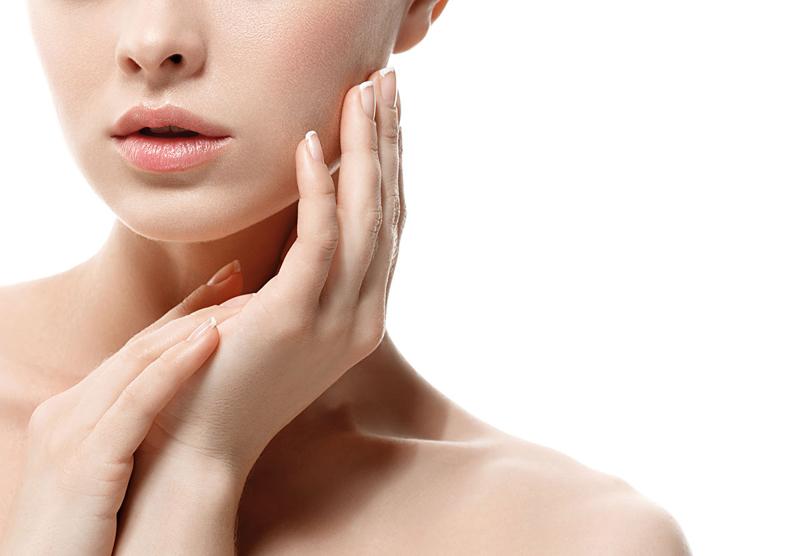
Lip enhancement is a treatment that can both volumize the lips and provide them with a better shape. Having full, plump lips is often considered a sign of good health, beauty, and youth. Whether you were born with thin lips, or your lips are thinning due to the natural aging process, there are many ways to enhance them; lip injections with natural or synthetic fillers can keep your lips plump for months at a time. Other options include fat grafting or transfers, lip lifts, and vermillion (lip) advancement.
At Alexander Cosmetic Surgery, we offer both temporary and long-term solutions for lip thinness that can leave a patient with more voluptuous lips that inspire confidence. For more information about the lip enhancement procedures that we offer at our San Diego office, please contact us online or call us at (858) 455-7557. We look forward to helping you look your best.
Contents
Before and After Photos
About Lip Enhancement
There are many different options to enlarge or enhance the size and shape of your lips. Injections, grafting, and surgery can physically change the plumpness and volume of your lips, while lip lifts and vermillion advancement can change their shape and increase the amount of the visible lip area.
Fat Injections
During fat injections, also known as fat transfers or fat grafting, autologous fat–fat from one’s own body–can be taken from another area of the body with liposuction. Liposuction requires only a small incision at the fat extraction site so that the cannulas, or tubes, can extract the fat. After processing and preparing the fat, the surgeon can then inject it into the lips. Because this treatment utilizes a patient’s own fat, results can appear and feel more natural. Some patients may require multiple injection sessions in order to achieve their desired result. (1)
Filler Injections
Fillers made from natural or synthetic biocompatible material can act as a fat substitute that functions to plump up the lips. One treatment is usually sufficient to produce the desired result. The results, however, may be temporary; patients may require repeat injections if they want to maintain their results. (2)
Vermilion Advancement
This procedure involves making an incision along the border of the colored portion of the lips. The surgeon can remove a strip of skin outside the border of the lips and then pull back the colored portion to increase the visible area of the lips. (3) Because this is a surgical procedure, it is more permanent than fillers, and will most likely appear more natural as well.
Lip Lifting
Removing extra skin and lifting the lips will help those with loose skin or a downward-sloping mouth. To enhance the appearance of the upper lip, the surgeon can make an incision under the nose and shorten the skin in order to lift up the lips. Other lift techniques can shorten the upper lip to expose more teeth. To lift a downward-turning mouth, the surgeon can make small incisions on the sides of the mouth and remove the extra skin. They will use very small sutures for this procedure and will remove them 4-5 days later. (4)
Benefits
Each method of lip enhancement comes with its own benefits. For example, some lip injections are temporary and can be modified to your preference. However, patients can also opt for a more permanent solution to lip thinness. What’s more, patients can experience a quick one-day recovery for most injections, and a week-long recovery for most lip surgeries. After a lip enhancement procedure, patients can see:
- Fuller lips
- More defined lips
- Decreased appearance of wrinkles on and around lips
- Quick results
Candidates
Good candidates for lip enhancement are people who want to plump up thin lips or create a fuller look. If you smile and your top lip or both lips disappear, you may benefit from lip enhancement. Some techniques can improve uneven lips, the shape of your mouth, and the amount of gum that shows when you smile. On the other hand, if your lips are too large and overwhelm your face, you should speak to your plastic surgeon about lip reduction surgery.
If you are in good general health, have a positive attitude and realistic expectations, you are most likely a good candidate for this procedure.
When to consider lip enhancement:
- Your lips have always been thin or disappear when you smile
- As you age, your lips have become thinner and less full
- You feel self-conscious about how your lips look
- Having fuller lips will help balance out your face
Personal Consultation
During your initial consultation, you will have the opportunity to discuss what you want to achieve in regard to your appearance. Once we understand your goals, we may suggest additional or related procedures. It is important to be completely honest during the consultation; patients should be prepared to answer questions such as these:
- Do you have any medical conditions or drug allergies?
- Are you being treated for any medical conditions?
- Have you had any previous surgeries?
- What are your current medications, vitamins, and herbal supplements?
- What is your current use of alcohol, tobacco, and recreational drugs?
- What is your history with any noninvasive cosmetic procedures?
- What outcome do you expect from the surgery? What is your chief motivation in undergoing it?
During the evaluation portion of the consultation, your surgeon may ask you to look in a mirror and point out exactly what you would like to see improved. They may take pictures for your medical record, measure your face, and use computer imaging to show you possible improvements you can expect. After this evaluation, you will discuss your options and your provider will recommend a course of treatment. We will make sure to discuss with you the likely outcomes of the procedure, including risks or potential complications, as well as the type of anesthesia that will be used.
To schedule this personal consultation, please contact us online or call our San Diego office at (858) 455-7557.
Preparation
Prior to surgery, we will have you:
- Take certain medications or adjust your current medications
- Avoid taking aspirin, anti-inflammatory drugs, and herbal supplements as they can increase bleeding (1)
- Stop smoking well in advance of surgery
During a preoperative appointment, usually 1-2 weeks before surgery, we will:
- Order lab testing or a medical evaluation
- Tell you what to do on the night before and morning of surgery
- Discuss the use of anesthesia during your procedure
- Explain post-operative care and follow-up, and what help you will need–if any–after the procedure
Procedure
Each lip enhancement procedure will vary, as each method incorporates different techniques that can be customized for each patient. Our staff will administer medications for your comfort during the surgical procedure. We will recommend the best anesthetic choice for you based on the complexity of your procedure.
The decision to undergo lip enhancement is extremely personal and you will have to decide if the procedure will achieve your goals, and if the risks and potential complications are acceptable to you. We will explain the processes and risks associated with the procedure during your personal consultation. It might be appropriate for some patients to combine 2 or more of our lip enhancement procedures in order to achieve the right look.
Non-Surgical Enhancement Procedures
Injections with dermal fillers can be performed in the office with little to no downtime and minimal preparation. We will first prepare the treatment area. If necessary, we may also apply numbing cream to the area. The procedure should take less than an hour in most cases. We will give you detailed instructions to follow once you leave the office.
Surgical Lip Enhancement Procedures
Your lip enhancement procedure will be performed in an accredited, designated surgical area. Most procedures take anywhere from 30 minutes to 2 hours to complete. If you are having fat transfer surgery, your surgeon will first perform liposuction to acquire viable fat to later inject into the lips.
Recovery
The downtime from nonsurgical lip enhancement is minimal; you may experience some bruising or swelling which will subside with time. With other procedures, your provider will discuss with you how long it will be before you can return to your normal level of activity and work. After surgery, you and your caregiver–if applicable–will receive detailed instructions about your postsurgical care, including information about normal symptoms you will experience and potential signs of complications.
You may gently apply a cold compress to the treatment site to reduce swelling, bruising and pain. Depending on your procedure, we may also recommend that you commit to a liquid-only diet for 1-2 days. You will most likely be mobile on the day of your surgery, but there may be restrictions relating to the activities that you can participate in. (1)
Results
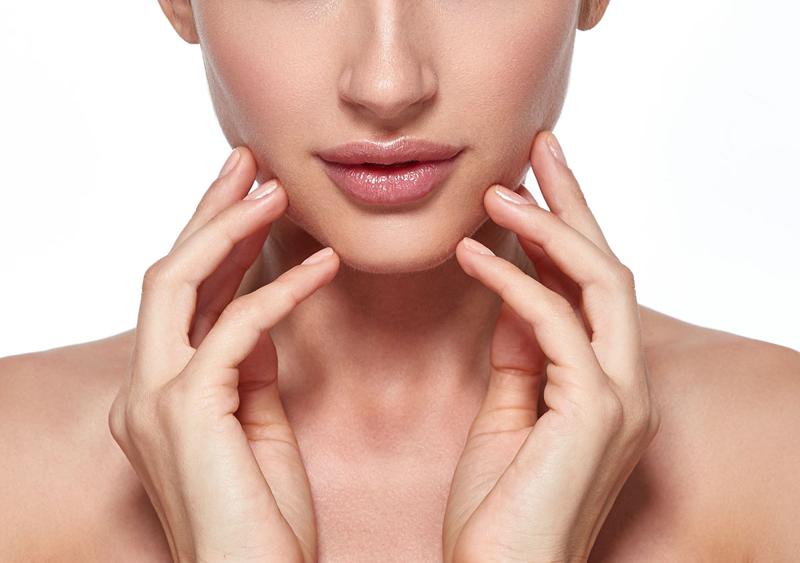
The duration of lip enhancement results depends on the elected treatment and the patient’s individual reaction to the procedure. Fat injections may require multiple injections for sufficient results, but they have the potential to provide permanent lip enhancement. Filler injection results depend on the type of filler used; some fillers last around 3-6 months, while others can last almost a year. Lip lifting and vermillion advancements can also provide essentially permanent results.
It’s important to return to our office for a follow-up evaluation. Do not hesitate to contact our team whenever you have any questions or concerns.
Cost of Lip Enhancements in San Diego, CA
The cost of lip enhancements varies across the different procedure options. To find out how much your procedure will cost, please call Alexander Cosmetic Surgery at (858) 455-7557 or fill out our contact form.
FAQ
How long do lip enhancement results last?
The duration of results varies by technique but typically lasts between six months and a year for fillers, while surgical approaches offer more permanent improvements.
Are there any side effects from lip enhancement?
Common side effects include swelling, bruising, and temporary tenderness. Severe reactions are rare when the procedure is conducted by a skilled professional.
Can lip enhancement be combined with other procedures?
Yes, many patients opt for simultaneous treatments like cheek augmentations to achieve comprehensive facial rejuvenation.
How soon can I resume normal activities after lip fillers?
You can resume most daily activities immediately, but it is advisable to avoid strenuous exercises and direct sun exposure for 24 to 48 hours.
References
- Vasavada A, Raggio BS. Autologous Fat Grafting For Facial Rejuvenation. PubMed. Published 2021. https://www.ncbi.nlm.nih.gov/books/NBK557860/
- Germani M, Cristina C, Ricardo V. Comparison of 2 Fillers for Lip Injection—A Randomized-Controlled Clinical Trial Assessed by 3D Imaging. Aesthetic surgery journal Open forum. 2024;6. doi:https://doi.org/10.1093/asjof/ojae003
- Yamin F, McAuliffe PB, Vasilakis V. Aesthetic Surgical Enhancement of the Upper Lip: A Comprehensive Literature Review. Aesthetic Plastic Surgery. Published online July 16, 2020. doi:https://doi.org/10.1007/s00266-020-01871-3
- Salibian AA, Bluebond-Langner R. Lip Lift. Facial Plastic Surgery Clinics of North America. 2019;27(2):261-266. doi:https://doi.org/10.1016/j.fsc.2019.01.004

